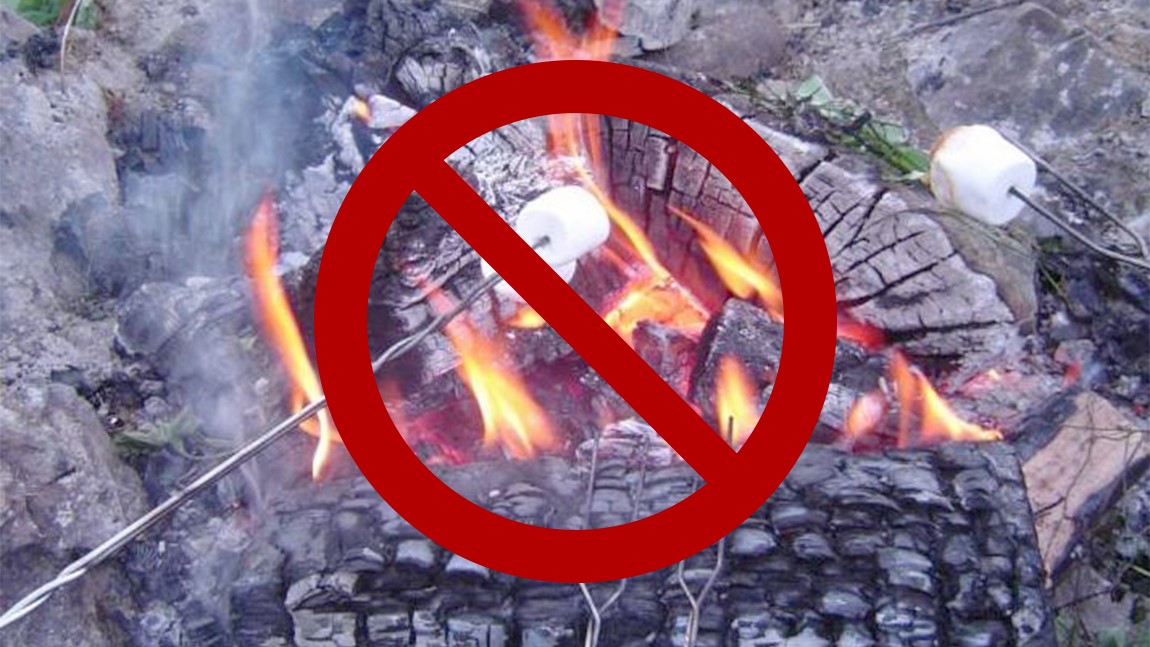With the Okanagan under an ongoing heat warning, and temperatures nearing 40 C, the cities of Penticton and Vernon have enacted campfire bans.

Both cities announced their respective bans on Friday, with each noting they’ll take effect in the afternoon. And, at the same time, the Regional District of the Central Okanagan (RDCO) issued a campfire ban that will remain in effect until further notice.
The RDCO ban includes West Kelowna, Lake Country, Peachland, Westbank First Nation plus Ellison, Joe Rich, North Westside and Wilson’s Landing.
As for Kelowna, the city has a year-round campfire ban.
“By order of the Fire Chief, there will be no campfires within the City of Penticton boundaries, effective July 29, 2022, at 4 p.m., until further notice,” said the City of Penticton.
“This order is in alignment with fire danger class now being extreme in the South Okanagan.”
In Vernon, the fire chief David Lind said, “earlier today, the wildfire risk rating for Vernon was increased to extreme. The current conditions in the region are expected to continue for the next several days and we have been experiencing periods of dry lightning throughout the Okanagan Valley, including the North Okanagan.

Get daily National news
“Implementing a campfire ban allows us to reduce the risk of human-caused wildfires and protect public safety, particularly at a time when weather-related risk factors have increased.
“Thank you to those who are taking efforts to FireSmart the areas around your homes and are keeping fire-safe behaviours top of mind.”

Notably, Friday’s announced bans do not include approved gas (eg: propane) appliances.
Provincially, Category 2 and 3 open fires are currently banned across B.C.
A Category 2 open fire is either stubble or grass fire that doesn’t exceed 0.2 of a hectare, or a pile that doesn’t exceed two metres in height and three metres in width.
A Category 3 open fire is a pile that exceeds two metres in height or three metres in width, and stubble or grass exceeding 0.2 of a hectare.
Though those fires are currently banned, the province has yet to clamp down and issue a campfire ban. As of Friday afternoon, campfires were allowed in all of the province’s six fire centres.

In Kelowna, the city has a webpage dedicated to its year-round campfire ban.
“Campfires and outdoor wood burning appliances are not permitted in Kelowna — including fire pits, wood stoves, chimneys and other appliances — unless conditions are met as outlined in Fire and Life Safety Bylaw No. 10760,” reads the first sentence on the page.
“These restrictions do not apply to food smokers. The bylaw allows us to impose requirements in relation to municipal services, firecrackers, fireworks and the health, safety or protection of persons or property.”
Also Friday, the District of Coldstream announced a campfire ban.
The district’s ban, like others introduced on Friday, includes the following items:
• Campfires
• Discarding burning substances near combustible material
• Open-air burning
• Fireworks
• Sky lanterns
• Tiki torches and similar kinds of torches
• Burn barrels or burn cages
• Chimineas
“The fire risk has increased to extreme for our area, and the current conditions in the region are expected to continue for the next several days,” said the district. “We have also been experiencing periods of dry lightning throughout the North Okanagan area.
“A campfire ban allows us to reduce the risk of human-caused wildfires and protect public safety, particularly at a time when weather-related risk factors have increased.”
- Trump doubles down after U.S. Supreme Court strikes down global tariffs
- Real Canadian Superstore fined for ‘misleading’ Product of Canada displays
- ‘No reason to continue discussing’: Ontario mayor wants Andrew’s name dropped
- Danielle Smith promises Alberta referendum over immigration, Constitution changes








Comments
Want to discuss? Please read our Commenting Policy first.